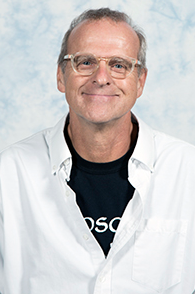Column: Time for Faith and Humility is now

By Professor Stephen Morrow —–
Welcome to more sunlight and shadow-to gratitude and challenge-to simply good things and to shadow things that bring hard choices our way. Happy Holidays!
The holidays are a circular calendar keeping a focus on the meaningful relationships in our lives. Most of these holidays are from the tradition of our world religions.
Few things bring so much bright light and so much darkness as the human experience of religion. Whatever our faiths, theologies, agnostic principles, theocracies, or our belief, religion is a deeply faced experience we all share, throughout time and around the globe.
Religion, to bind together. Sounds painful, doesn’t it. But let’s back up into some imagined beginnings. I reach out to spirit of the philosopher Giambattista Vico to help me here.
Before agriculture, before citystates, before science, when out there in the plains and forests, feeling pretty much alone and fearful, binding together was the thing to do. Imagine a cold night in the forest, hunger facing you again tomorrow, wanting to be there for your loved ones, binding together in religion makes much sense.
Then, recorded history comes, centralization of power comes, patriarchy comes (boo! Go feminists!), and here we are. Many world religions are formed in those processes that bring stability and grace to many within a particular religion fold. It is tough to argue against such history-making and such light and goodness brought into the world.
But let’s argue anyway for the sake of thoughtful balance and for the sake of a 21st century world where our social scope has moved from small tribe to global citizenship in a matter of decades. After the industrial revolution, the process of urbanization was set as the writing on the wall for the near future and as a characteristic of our time.
Around 2007, the world population tipped from living rural to living urban. As well, we are just learning to find our way together in the Information Age. Considering these changes, we have a very shadowy question we are responsible to ask ourselves: why must any religion claim its superiority over any other?
Theology of course, the promise of salvation in some religions, larger membership make more powerful and richer entities, truth with a capital T can only be one thing, God said, etc.: many answers. But they are all answers that cast far, deep shadows on our living together. One answer deserving of some consideration is the idea of tolerance for all different religions.
Certainly tolerance is a more sunlit answer to the shadow-side of religion, but has not been too effective in sorting out our religious differences, though does help us start the conversation.
Tolerance calls for an educated and sophisticated perspective, and not all of us have access to such privilege, all-the-while being bound by the universal, deep human experience that is religion. Thus, the reality that religions still do much dividing and much harm in the world, regardless of the light and hope they bring.
So how to be better together in the promise of hope and citizenship, global or otherwise? I argue sincere humility.
That sincere humility of a Socrates who questioned not to tear down any given belief or idea, but to simply say, “Hey, there are no all-powerful, universally proven answers that answer the big questions we share as part of the human experience, so let’s hang here questioning and listening, but bound together by our shared, deeper ignorance and by our love of the Good.”
At heart, in the dark, we do not know the big answers for certain. But in high noon light, we do know enough about the Good to know it should include all of us as it comes into the world.
Remember Dr. King’s call to a connection that we all share: if one is hungry, we are all hungry.
Humility of thought and loving care for our sisters and brothers is still a binding, just not so select and not so gated. Happy Holidays, Everyone.